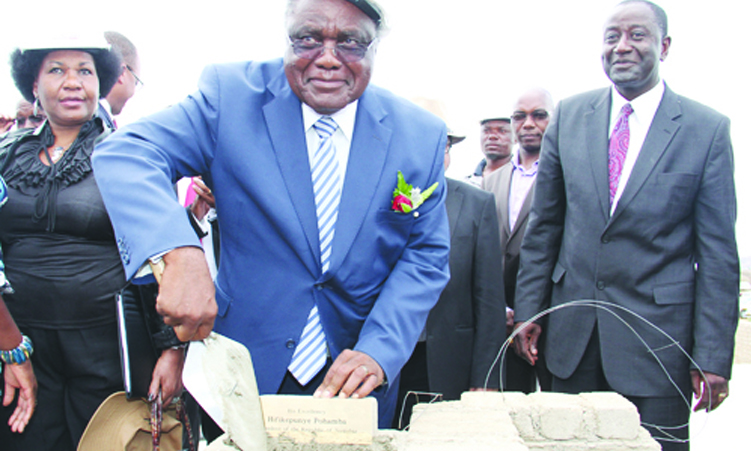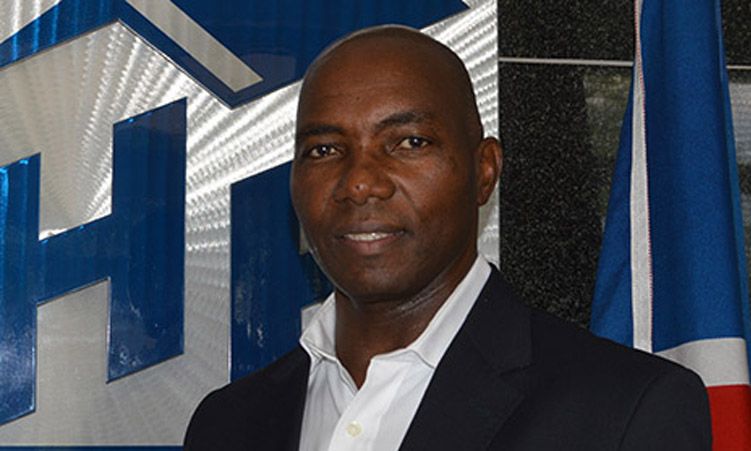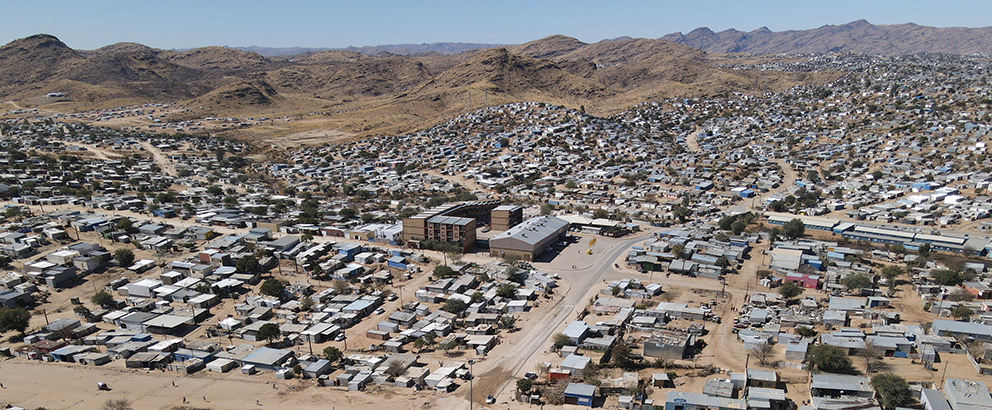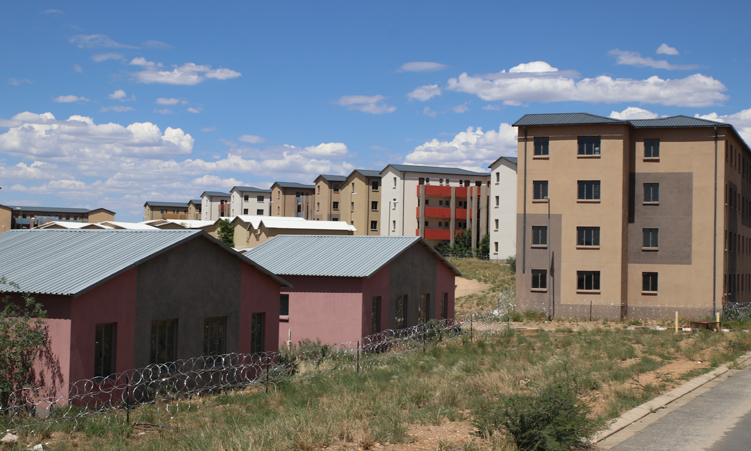Former president Hifikepunye Pohamba says contractors’ greed hijacked his signature N$48-billion housing project through which 185 000 houses would be built by 2030.
“Unfortunately, defective implementation of the housing scheme castrated the project, because greed crept in and hijacked the good intentions of the housing scheme, which could have benefited many,” Pohamba says in his autobiography, ‘Footprints of Hifikepunye Pohamba – Onjila eyi Ayenda’.
In 2013, Pohamba launched an ambitious housing programme, but his dream did not live long.
His successor, Hage Geingob, stopped the project in 2017, citing irregularities and corruption in the awarding of the tenders.
The Namibian exposed how the N$3.5-billion housing project was highly inflated by contractors.
Some, according to documents at the time, became overnight millionaires after they outsourced the construction to southern African companies.
Even Pohamba’s own daughter was given a N$16-million mass housing tender at Otjiwarongo.

GREED
In his book, Pohamba says a pro-poor housing project was a priority area for him when he took over the reigns of the country.
“It pained me every time I drove through the townships. It did not matter whether I was at Katima Mulilo or Walvis Bay, or Oshakati or Opuwo – to see our people living in zinc houses without access to safe drinking water, electricity and sanitation,” he says.
“Therefore, a pro-poor mass housing project became one of the very first initiatives under my presidency,” he writes.
Pohamba says it pains him even more that most of these houses are still unoccupied. Although some houses have been completed in the project, the majority of houses remain unoccupied.
In Windhoek, 360 houses remain unoccupied, 11 years after the former president launched the project. Pohamba says the project’s contractors poorly supervised construction and, in some instances, built houses without access to basic amenities.
“I was shocked to find out in 2020 that some of the affordable houses for low-income earners built during my presidency were unoccupied and getting vandalised,” he says.
Pohamba says he was not accurately informed of the irregularities at the mass housing project.
He felt betrayed by the people his administration entrusted with this responsibility, he says.
“As a president, my reliance is on my appointees. Unfortunately, self-interest can be a blinding thing when it comes to seeing the big picture,” he says.

The prevalence of homeless people, coupled with accelerated urbanisation, required an emergency response to the housing crisis.
By 2023, a total of 4 200 housing units had been built and handed over.
The mass housing project was intended for low-income families to purchase living units at prices subsidised with 50% or 60%, depending on buyers’ income brackets.
Namibia’s current housing backlog stands at 300 000.
‘I AM ANGRY WITH YOU, HAILULU’
Pohamba famously castigated the then National Housing Enterprise chief executive officer Vinson Hailulu for the houses, which he said were designed and constructed like structures from the apartheid era.
“If a fire comes from this side (blocking the only exit), these people will die,” Pohamba said at the time.
He added: “I am angry with you.”
In his book, the president recalls calling out Hailulu.
“I was famously quoted when I stated the obvious that, ‘If a fire were to come from this side, these people will die!,” Pohamba says.
Pohamba says he would visit mass housing sites unannounced to observe progress.
“Arriving unannounced allowed me not only to meet those responsible for the project, but also to see the progress in real time. I had first-hand information,” he says.
“Despite efforts to monitor progress, I realised there was poor planning at the initial design stage,” he writes.
“Once the house plans were accepted with design faults by the professionals in the ministry, the contractors would just go ahead and produce a building that would serve no purpose.

“I was visibly agitated at a government official for overlooking the fact that their houses didn’t have a second exit door at the kitchen.”
The ex-president said the policy intention of the housing scheme was exceptional, because the demand for housing in Namibia is just too high to be ignored.
“This was reflected in the record high housing prices in our urban centres,” he says.
Pohamba says the mass-housing project meant a great deal to him.
“Equality of opportunities was extended to address the national need for housing and decent accommodation.”
Pohamba says his desire was to see Namibians living in a healthy environment and to afford them quality of life through equity and resource distribution.
“It was aimed at improving accommodation for low-income Namibians who were squatting in township suburbs,” he says.
“My intention was to move them from living in poor informal settlements into decent houses, by giving them an opportunity to buy these houses at a reduced price,” he says.
Pohamba says the idea was to build and sell, and then reinvest the money into the project to build more houses on a continuing basis until all low-income earners were moved from zinc and cardboard-box houses into basic, standard, two-bedroom houses with a shower, toilet, kitchen and living room.
He says the idea was not to create the impression that the government was dishing out houses for free, because doing this would create unsustainable expectations of the government.
“I would have loved to have seen the successful implementation of this project,” he says.
“I instructed the ministries of works, transport and communication and the National Housing Enterprise to contract companies to construct these houses at every major town in Namibia.”
Three years ago, minister of urban and rural development Erastus Uutoni failed to set a deadline for the government to allocate 890 houses, including units in Windhoek, which has a waiting list of 40 580.
Uutoni, however, said the government set a deadline of March 2022 to determine the cost of completing the unfinished houses under the project.

Stay informed with The Namibian – your source for credible journalism. Get in-depth reporting and opinions for
only N$85 a month. Invest in journalism, invest in democracy –
Subscribe Now!







